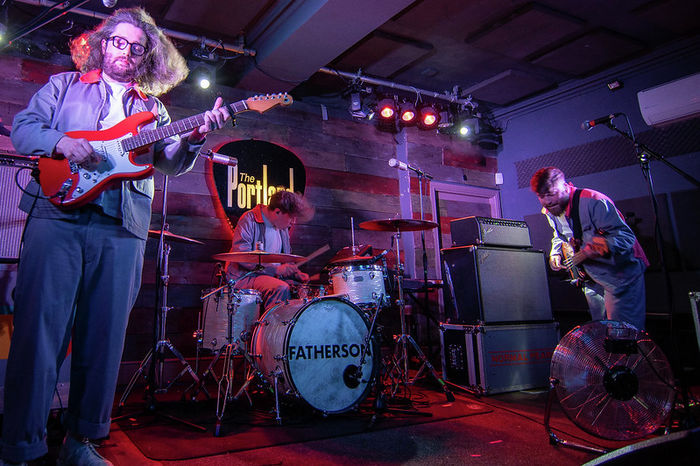The Cambridge Centre for Music Performance – one year in
Alexander Brian and Anna Metzger ask the CMP how far they feel they have gone towards achieving their aims

When the University launched its Centre for Music Performance (CMP) in 2022, it had four key goals: enhancing opportunities for highly talented musicians, supporting student-led music making, providing for a diverse range of musical genres, and developing programmes for beginners. Now, one year has passed since its inception and we spoke to Felix Asare, Rachel Armitage and April Perrot from the CMP to gauge their progress towards achieving these aims.
“It’s refreshing to see such dynamism in efforts to reform the Cambridge music scene”
Partly established to provide the resources needed to navigate the Cambridge music scene which were lost during the pandemic, the CMP faces a major challenge: making sure students know it exists. Consequently, they have hired student representatives, who attend board meetings, and organised student forums, which bring together the members of bands and college music societies. They also hosted a Launch Festival last Michaelmas and ran a stall at Freshers’ Fair. Where they feel they have been less successful is provision for beginners. Nevertheless, Asare asserts that this is at the “top of the list” for 2023/24.
The CMP’s unique resource pooling has enabled the organisation of events that colleges might not have been able to afford individually. For instance, Mark Armstrong, the artistic director of the National Youth Jazz Orchestra, gave a masterclass on musical directing, while the “Take It to the Bridge” songwriting competition saw the winners perform on the main stage at the Cambridge Club Festival. Other events included regular gig nights showcasing student bands, two major concerts by the Cambridge University Jazz Orchestra at West Road Concert Hall and a workshop led by Black Country, New Road.
“Asare asserts that the Cambridge music scene has become less insular thanks to the CMP”
Asare asserts that the Cambridge music scene has become less insular thanks to the CMP. Previously, connections could only be made by joining large bands. Now, likeminded students can meet through the CMP Band Hub, which has organised mixers, jam sessions and online events. Groups like Spilled Vodka, which formed through the Hub, went on to play ten or eleven May Balls.
One group that formed through the CMP Band Hub, Spilled Vodka, went on to play several May BallsInstagram (@spilledvodkaband)
Likewise, around 600 students have signed up to their Online Hub, which contains a registry of events, venues, societies and equipment for hire. When we asked whether the CMP planned to introduce any more features, Asare explained that they hoped to start a newsletter, provide a directory of instrumental teachers and make it easier for students to book events and equipment.
It’s refreshing to see such dynamism in efforts to reform the Cambridge music scene, which, as Asare notes, can be reluctant to change. The Cambridge University Orchestra, for example, has broadened its repertoire to include more contemporary composers, women composers and composers of colour, challenging the “stuffy” reputation of classical music. Similarly, The CMP aims to give more attention to popular and world music, which are less well-established in Cambridge, and challenge the idea that you must be “really good” at something to take part. These efforts are especially vital given the welfare benefits of making and enjoying music with others.
Overall, although there is still progress to be made towards making everyone feel welcome in the Cambridge music scene, the CMP seems to be on the right track. Where there are weaknesses, they have identified them and are actively looking to resolve them. For instance, while Cambridge is better known for its choirs and orchestras than its world music, the CMP has helped launch an Indian Classical Music Society and is hoping to purchase more instruments from across the globe while inviting world music experts to Cambridge. We have, after all, had just one year with the CMP. With any luck, the Cambridge music scene will continue to evolve into a more diverse and inclusive community.
 Features / Cambridge: where toxic productivity turns rest into a radical act8 April 2025
Features / Cambridge: where toxic productivity turns rest into a radical act8 April 2025 News / Rowing row continues as Oxford and Cambridge scrap women’s trial race9 April 2025
News / Rowing row continues as Oxford and Cambridge scrap women’s trial race9 April 2025 News / Uni to ‘review’ tripos rankings and weekend lectures in undergrad teaching overhaul10 April 2025
News / Uni to ‘review’ tripos rankings and weekend lectures in undergrad teaching overhaul10 April 2025 News / Under 3% of applicants for Cambridge academic jobs are successful7 April 2025
News / Under 3% of applicants for Cambridge academic jobs are successful7 April 2025 Comment / Death of the June Event?9 April 2025
Comment / Death of the June Event?9 April 2025





